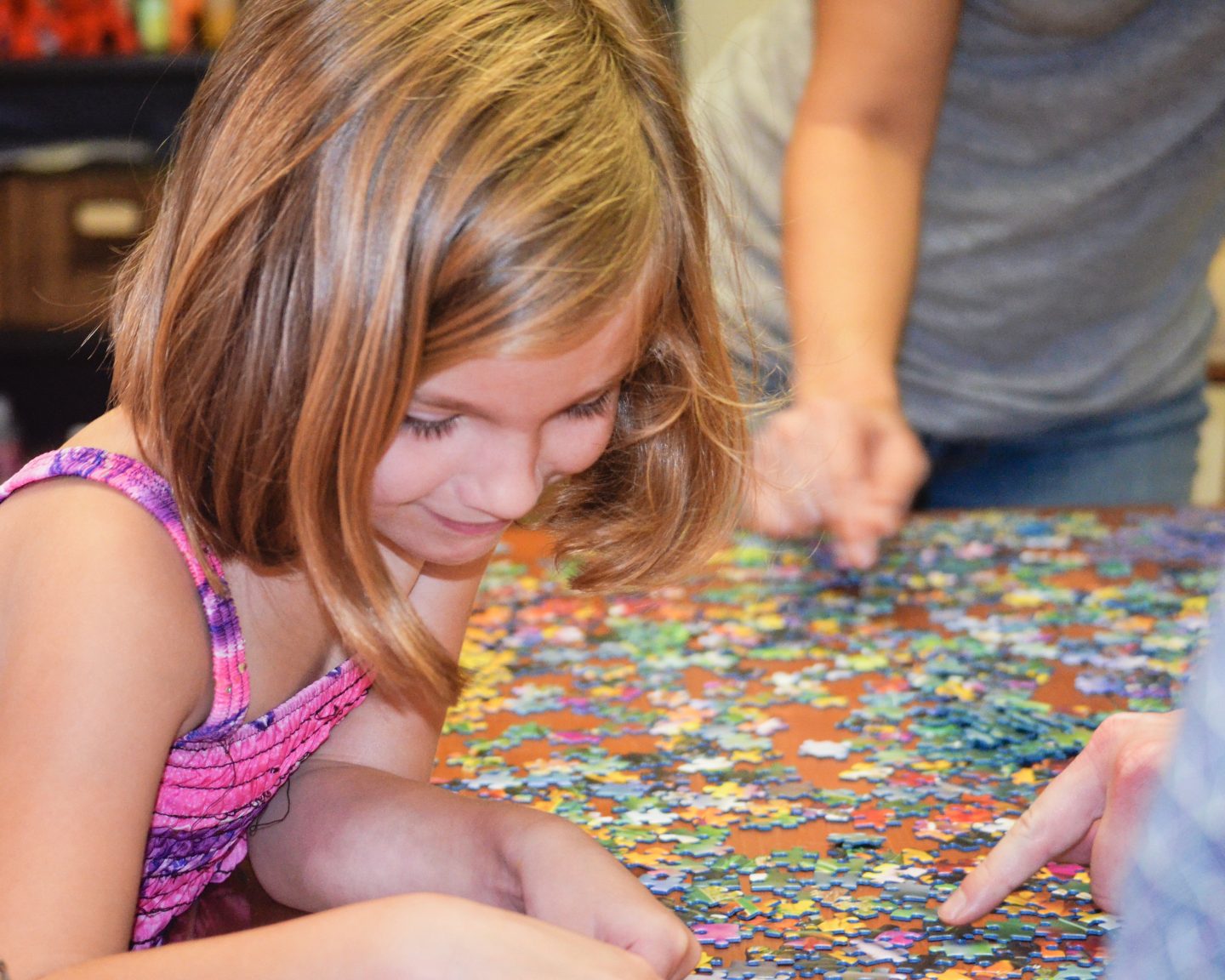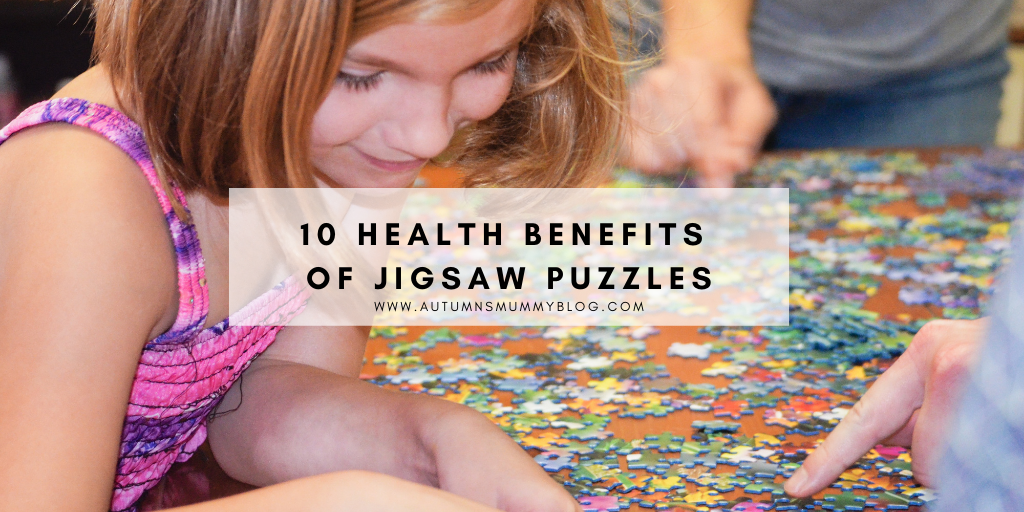Collaborative Post¦ Puzzles are a great activity for all the family. Suitable for all ages and with a variety of pictures and difficulties, they provide hours of fun. My 4 year old and I have a great time doing her jigsaw puzzles together. However, did you know that there are also lots of health benefits to doing puzzles? Check out 10 ways they can help to improve you and your family’s health:
1. Puzzles are a work out for your brain
Unlike most activities, jigsaw puzzles give both hemispheres of the brain a work out. The left side of your brain thinks logically and analytically. Meanwhile, the right side controls creativity. When you’re doing a puzzle, both sides are working on how to solve it.
2. They are relaxing
Concentrating on a puzzle takes your mind off of other things, putting your mind into a state of relaxation. Relaxing, of course, is always good for both your body and mind.
3. Puzzles give you a break from the digital world
Many of us spend an unhealthy amount of time with our technology, whether it’s binging Netflix series or scrolling through social media for hours. Of course, this isn’t very good for us! Spending time doing activities away from the screens, particularly those using your hands are a refreshing break that we really need. (Although, it is worth noting that there are actually some great sites with jigsaw puzzles online!)
4. They’re good for our motor skills
It’s not just our brains that puzzles work out. They also provide gentle exercise for the hands, which can help ease arthritis and dexterity. Meanwhile, it can help to develop children’s fine motor skills, gross motor skills and help with their eye-hand coordination.

5. Puzzles improve our attention span
Several studies have shown that due to the digital age, humans attention spans are getting shorter. However, puzzles can help improve this. They get our creative juices thinking and make us use our short-term memory.
6. They give us a sense of achievement
Don’t you get such a buzz when you complete a puzzle? Puzzles are a task with an achievable end in sight. You can’t help but feel that happy flow of dopamine when you successfully finish a jigsaw.
7. They could help decrease your risk of dementia
Some studies have shown that doing puzzles can help reduce cognitive decline. One study, in fact, found that “childhood cognitive ability was strongly associated with cognitive scores . . . more than 60 years later” [source]. With dementia being the lead cause of death in the UK, it could be a good idea for us to start doing more puzzles and making sure we keep our brains sharp.

8. Puzzles can help strengthen social bonds
Social interaction is a big part of our health (something that has become more apparent than ever this year!) Discussing a puzzle, thinking and working together with one or more people to solve it will help to strengthen your bonds with them.
9. They help to improve your visual-spatial processing
When you’re visualising how different pieces of a puzzle fit together, your brain is conducting visual-spatial processing. Frequently doing puzzles could help to enhance this and help you to better process daily tasks, such as driving and loading the dishwasher!
10. Puzzles can improve your IQ
A study at the University of Michigan has shown that doing only 25 minutes of puzzles a day could improve your IQ by 4 points. Wow! As they increase your memory, concentration, vocabulary, and reasoning skills, this actually makes complete sense [source].
So, as you can see there are a lot of health benefits to doing puzzles that you’ve probably never even thought of before. We love doing puzzles in our house. I buy most of ours from The Works, who have a great range of discount jigsaws, ideal for all age groups!
Disclosure: This is a collaborative post.
